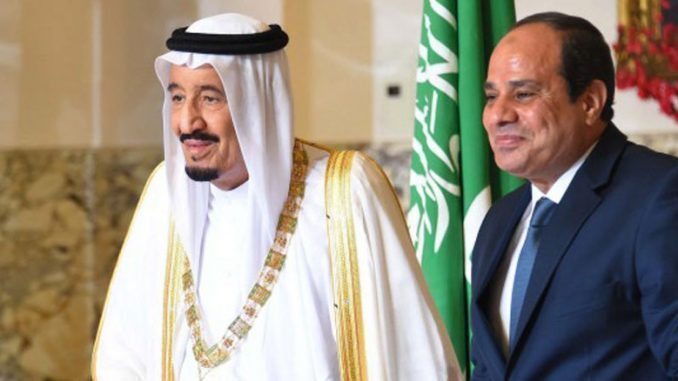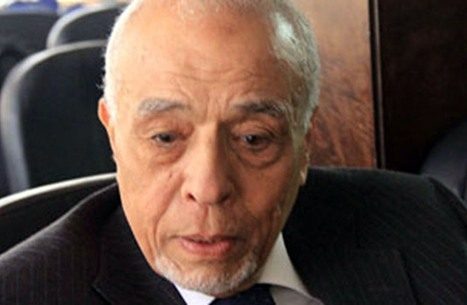
The Egyptian Saudi relations took another body blow on January 16 when Egypt’s High Administrative Court rejected the transfer of Tiran and Sanafir islands to Saudi Arabia.
Many observers believe that the two Red Sea islands’ issue will increase the differences between the two countries and thus, destroy their long-standing alliance that was restored when Abdel Fattah al-Sisi took power in 2014 after he led a military coup in 2013 against Egypt’s first democratically elected President Mohamed Morsi.
However, the islands issue, alone might not have been sufficient to create the present level of unease.
According to a report released by the Arab Gulf Institute in Washington titled:” No Divorce Pending In A Dysfunctional Marriage” what really intensified the tension between “is the presence of a range of regional concerns lies related to religion and politics at the heart of the differences between Cairo and Riyadh.”
Islamization: A key Difference Between Cairo and Riyadh
The Egyptian government, like that of the UAE, categorically rejects all forms of politicized Islam, or the Islamization of politics, in the Arab world.
Both Egypt and the UAE agree that although there is a range within the Islamist movements and differences among groups, however they perceive all of them as “stemming from common origins, sharing key a prior assumptions that, strategic and tactical differences notwithstanding, lead to similar logical conclusions,” according to AGSIW report.
As a result, they view Islamists in general as operating along a continuum and ultimately reinforcing rather than countering each other in the broadest sense.
In this context, both Egypt and UAE refuse the idea that some “moderate” Islamists, such as the Muslim Brotherhood-affiliated parties, might be useful bulwarks against more extremist ones, such as Salafist-jihadist groups like al-Qaeda and ISIS.
However, they are all viewed by Egypt and UAE as aspects of a single, overriding threat.
“The most overt manifestation of this shared view has been Egyptian-Emirati cooperation in Libya , including joint military actions against extremist groups there,”said AGSIW report.
It is noteworthy that Egypt and UAE back General Khalifa Haftar whose forces in Libya, known as the Libyan National Army (LNA), are engaged in fighting against Islamist movements in Libya.
In contrast, Saudi Arabia views some Islamist groups, particularly some Salafists, as allies in certain contexts.
For instance, the kingdom has recently softened its stance against the Muslim Brotherhood somewhat, worked with Brotherhood-affiliated political figures in Yemen, and supported Islamist rebels in Syria and some other parts of the Arab world, according to the report.
For UAE, its relationship with Saudi Arabia “is the cornerstone of its national security policy, and it is careful not to allow disagreements over its stance on Islamist groups to harm relations with Riyadh.”
The UAE takes care, generally, to tread lightly when it differs with Saudi Arabia. In Yemen, it operates differently to a certain extent than Saudi Arabia, but in different parts of the country, with UAE in the south primarily now combating ISIS and al-Qaeda while Saudi Arabia continues the battle against the Houthi rebels and their Yemeni allies in the north.
Accordingly, although UAE and Saudi Arabia differ in their concepts regarding Islamization but one can say that there is a kind of balance or job specialization between both countries as each of them fight a certain group in Yemen,however, all pour in the same direction which is “maintaining the Gulf National Security.”
Syria: Another Key Difference Between Cairo and Riyadh
In Syria, the UAE has cooperated with the U.S. and Jordanian approach, “prioritizing the battle against ISIL, and has been active in the south of the country, coordinating with, and following the lead of, Washington and Amman.”
However,”This divergence of emphasis has not led to any major problems with Saudi Arabia,”said the report.
In contrast, Egypt’s position has increasingly run directly in divergent to Saudi Arabia’s view of Syria.
Egypt’s al-Sisi is against the idea of toppling Al-Assad’s regime,which has been a central pillar of Saudi and Qatari foreign policy in recent years, and over the course of 2016 became more noticeable in its opposition to regime change in Damascus.
last November, al-Sisi bluntly expressed his support for the victory of Assad’s army in the conflict. In addition, Egypt’s relations with Russia, one of the major backer to Al-Assad’s regime, have warmed and their fundamental agreement over Syria has been a core component.
Last October, Cairo voted for the Russian resolution in the UN Security Council. As a result, Cairo’s support for the Russian version caused significant anger in the Gulf, especially Saudi Arabia, and was apparently the main for Riyadh cutting off the delivery of oil supplies to Egypt despite the existence of a multiyear agreement for such discounted sales.
In addition, there have even been security cooperation between Al-Sisi and Al-Assad’s regime. Media reports have pointed the presence of “military personnel and other material support to help prop up the Assad regime in Damascus, although there is no evidence for this and most observers regard it as extremely improbable. However, differences over Syria are the most dramatic manifestation of this broader divergence over religion and politics,”said the report.
The Yemen Conflict: A Third Key Difference Between Cairo And Riyadh
The report mentioned,” And while the UAE has been careful not to allow its views on the subject, which are similar to the Egyptian government’s, to interfere with relations with Riyadh, Egypt has been less cautious, which has also been apparent regarding the conflict in Yemen.”
Both the UAE and Saudi Arabia had hoped that Egypt would contribute more militarily to the campaign in Yemen than it did.
In fact, the Egyptian naval and ground forces have been involved, but not in particularly large numbers.
However, Riyadh was reportedly additionally annoyed and suspicious by the visit of a delegation of Houthi representatives to Cairo in 2015.
Tiran and Sanafir: The Egyptian Government Mishandled The Issue
The two Red Seas Islands issue has been the most contentious issue, and the one that has occupied most of the public opinion in both countries as it escalated the war of words between the advocates of each country.
Despite the historical claims of each party, no one can deny that,”the Egyptian government mishandled the issue and did not prepare the political ground for the transfer plan, which was suddenly presented as a fait accompli and was perceived as a blow to Egyptian national pride,” said the report.
The ensuing public outcry has allowed those inside Egypt hostile to the present administration, and regional powers and media outlets sympathetic to the Muslim Brotherhood, to frame the agreement “as a kind of Egyptian capitulation to Saudi financial clout and pressure, especially since the transfer was announced during King Salman bin Abdulaziz’s April 2016 visit to Cairo,” said the report.
Moreover, “Saudi Arabia also misread the political landscape in Egypt.”
“Riyadh appeared to many Egyptians to be demanding and heavy-handed, and participated in a process that produced friction with a key ally and weakened the Sisi administration it had long worked to support,” said the report.
It is worth mentioning also that the organizations and lawyers pressing legal cases against the plan in Egypt are all harsh critics of the present government, although the Egyptian public across the political spectrum is largely against transferring control of the islands.
As a result, the timing of the announcement allowed critics of the plan to cast it as “a quid pro quo despite the complex history and strong arguments for the transfer of control,” said the report.
As a result, al-Sisi regime has been viewed as having “sold” a part of Egypt’s patrimony to Saudi Arabia for financial gain and it also portrayed al-Sisi’s and his government as “traitors”.
The report pointed that the recent court ruling is by no means final.
The government plans to appeal to another judicial body, and has also referred the matter to the parliament, which claims that it, alone, can make a final determination on the matter.
In the same context, many Egyptian sources agree that “the controversy is likely to drag on for months, possibly not being resolved until at least the middle of the year, if not later. ”
Egyptians are not alone in feeling peeved over the issue, though. While the Saudi government has maintained a careful and relatively quiet stance over the controversy in recent months, some Saudi commentators have expressed their own anger, and several have suggested potentially taking the matter to international arbitration.
In fact, UAE is concerned about this rift between two of its most crucial allies. Saudi Arabia is essential to its national security strategy, while it aligns with Egypt on the key issue of Islamism.
In November 2016, Crown Prince of Abu Dhabi Mohammed bin Zayed visited Egypt and followed by a visit to Saudi Arabia in rapid succession, “in what was widely understood to be a high-level effort at mediation between the two key Arab powers.But they did not appear to break any impasse, and tensions over Syria, the islands, and other issues persist,” according to the report.
According to Emirati sources, “UAE has not given up on trying to bring the parties closer together, but is continuing with “conversations” rather than mediation and is trying to do things more quietly, given the unlikelihood of an immediate, short-term breakthrough.”
The report also pointed that the islands controversy” is likely to play out very slowly in Egypt’s labyrinthine legal, administrative, and political system, insofar as it suits all sides in Cairo to drag the issue out indefinitely to avoid a complete confrontation with either domestic public opinion or Saudi Arabia.”



